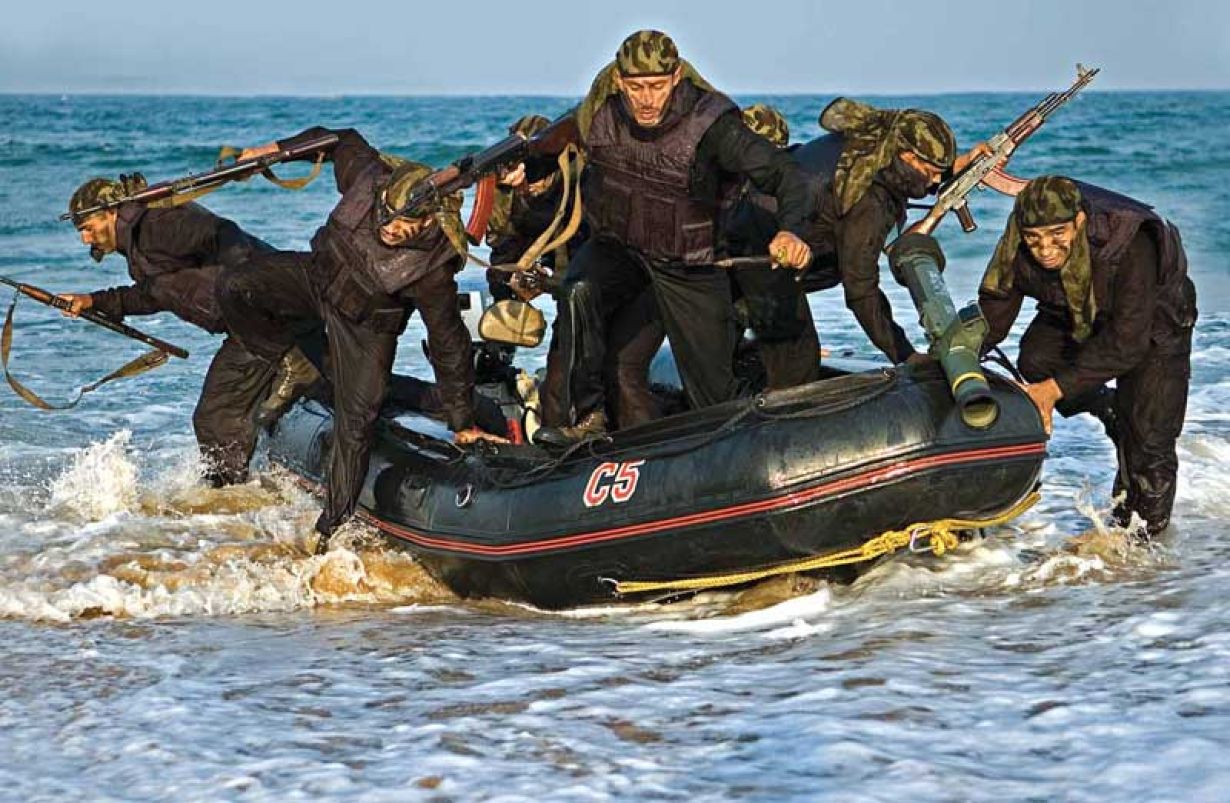By Vaishali Basu Sharma
On Dec 14, the Malta-flagged 41,600-dwt MV Ruen was boarded and hijacked by unknown assailants in the Arabian Sea, sailing towards the Somali coast. MV Ruen’s manager is from Bulgaria-based company Navigation Maritime Bulgare (Navibulgar), and the vessel was boarded off the Yemeni island of Socotra by unknown assailants.
This led to initial speculation that the incident could be related to Houthi rebel activity in nearby Yemen. Later, Bulgarian Prime Minister Nikolay Denkov qualified the hijacking of the vessel as “a case of piracy,” confirming the resurgence of Somali piracy in the Arabian Sea.
MV Ruen is a Bulk Carrier that was built in 2016 (7 years ago) and is sailing under the flag of Malta.
Britain’s maritime body received an alert from a ship security officer who believed the crew no longer had control of the vessel last seen in the open sea sailing towards Somalia.
According to the ship-tracking data, a local source claimed that six pirates took control of the ship, which was rerouted to the coast of eastern Puntland, a semi-autonomous region in northeastern Somalia.
It has been confirmed that the tracking system of the merchant vessel has been disabled, and last, it was heading towards Somalia. After initial reports that the hijacked ship was being taken toward Puntland, reports later indicated that the hijackers in Mogadishu were taking the vessel. However, Somali maritime authorities have not verified the claims.
This is the first successful hijacking by Somali pirates since 2017, when a crackdown by international navies stemmed from piracy in the Gulf of Aden and the Indian Ocean.
EU naval operations headquarters based in Spain sent a navy ship to try and respond to the reports. The Spanish worship Victoria has been sent to this scene to investigate and evaluate the action.
In a recent post on microblogging platform X, the European Union naval force announced, “Based on first information available on MV Ruen #OperationAtlanta flagship ESPS #Victoria is proceeding fast towards the alleged pirate hijacked vessel to gain more awareness and evaluate following actions also in coordination with @CMF_Bahrain.”
But it was the Indian Navy that promptly responded to the distress call from the Malta flag commercial vessel named MV Ruen. The Indian navy’s guided missile destroyer INS Kochi is near the hijacked vessel, as per the latest reports.
In an official statement, the Indian Navy reported, “Indian Navy’s mission deployed platforms responded swiftly to a maritime incident in the Arabian sea involving the hijacking of Malta-flagged vessel MV Ruen. The vessel with 18 crew on board had sent a mayday message on the UK MTO portal on December 14 indicating boarding by approximately 6 unknown personnel.”
Responding to the emergency, the Indian Navy swiftly diverted its naval maritime patrol aircraft undertaking surveillance in the area reports reveal that the Indian Navy deployed warships on and the piracy patrol in the Gulf of Aden to locate and assist MV Ruen.
The aircraft overflew the hijacked vessel on the early morning of December 15, with continuous monitoring revealing that the ship was now heading towards the coast of Somalia.
Continuing its vigilance efforts, the Indian Navy’s warship intercepted MV Ruen in the early hours of December 16. Emphasizing that they are closely monitoring the situation in coordination with other agencies, the Indian Navy affirmed its commitment to be a first responder in the region, ensuring the safety of merchant shipping in collaboration with international partners and friendly foreign countries.
The Japanese and Spanish warships had joined the pursuit of the hijacked vessel. While the Japanese destroyer JMSDF Akebono later withdrew from the operation, the status of the Spanish warship is unknown.
The European Union’s naval force EUNAVFOR said the incident was still ongoing. EUNAVFOR was in “close collaboration with the Somali local authorities.” it added that it was “coordinating efforts for a comprehensive follow-up and sharing of information.”
Interestingly, on December 1, the United Nations Security Council unanimously adopted a resolution lifting the arms embargo on the Federal Government of Somalia. The lifting of the arms embargo comes at a time when Somali pirates have resorted to significant hijacking after a several-year hiatus.
This has indeed created pressure on the Somali authorities to protect the territorial waters from piracy, which is a threat to international peace and this shipping route, which is significant to international trade.

This hijacking incident came when the Somali government was calling for an end to the International Maritime Force, which was based along the Somali coast, to provide assistance to container ships in the unfortunate event of a piracy attack and reassure shipping companies.
Maritime piracy threatens multiple maritime domains—including defense, commerce, fishing, seabed mineral resources, laws governing navigation, and sea-based transportation. The possibility of Somalia’s jihadist al-Shabab to maritime piracy cannot be ruled out.
Cargo vessels and tankers, which have become larger and more automated, are increasingly sailing under flags of convenience with smaller multinational crews. Pirates resort to powerful engines intended for larger vessels on small craft, enabling them to escape from slower warships. Pirates can accurately determine their positions using satellite navigation systems, greatly encouraging close teamwork and precise operations.
Meanwhile, with MV Ruen’s crew held hostage, options for rescue are limited, as an armed intervention could risk the lives of the crew. Direct military action against the hijackers is considered remote since it would carry the risk of collateral damage.
- Vaishali Basu Sharma is a strategic and economic affairs analyst. She has worked as a consultant with India’s National Security Council Secretariat (NSCS) for nearly a decade. She is presently associated with the New Delhi-based think tank Policy Perspectives Foundation.
- The author can be reached at postvaishali (at) gmail (dot) com.